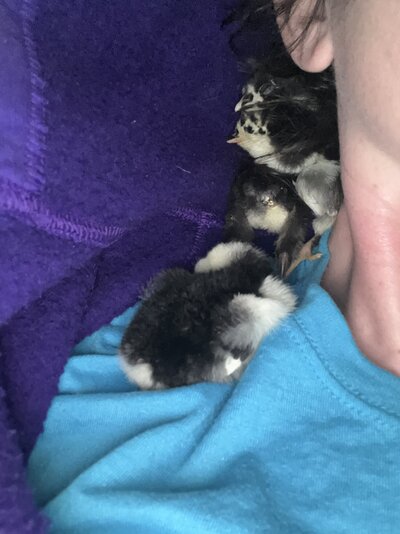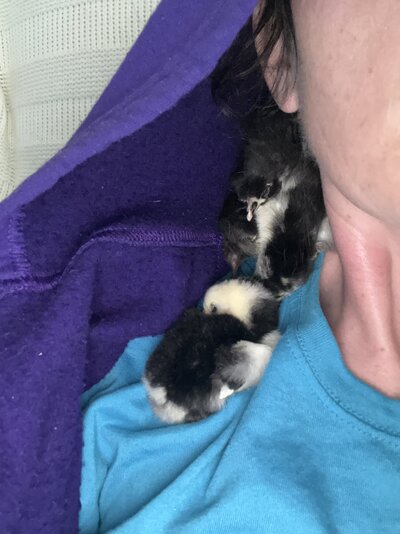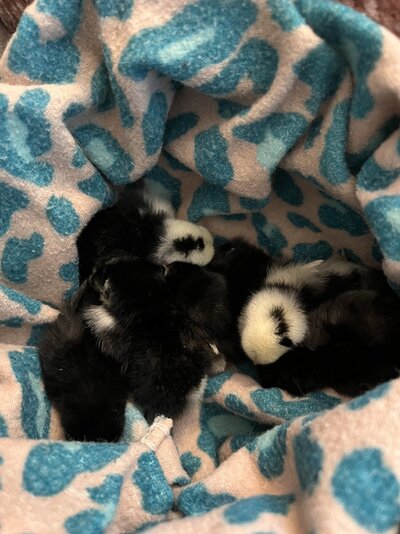Jenhansen
In the Brooder
Just bought six straight run chicks from Tractor supply. 3 breeds mixed together but I can identify one for certain. I have 11 adult hens, 1 adult rooster and 1 adolescent rooster already. They are obviously kept separate from the chicks with no issues so far. I’ve never raised chicks and need a bit of advice on what to expect and literally any advice towards best diet, anything specific that I might not know. Just any advice is very welcome and appreciated! The breeds I have already are Meat birds(they escaped a farm down the road and apparently my rooster called them here) 2 black Marans, one EE , big rooster is a barn mix, adolescent is a black Australorp, the chicks are Ancona, Jersey Giant, and Black austrlorps. Again thank you for any and all advice or tips! Pics attached are of the babies… they are absolutely not in my hoodie at all  sorry that is the best pictures I can get at the moment
sorry that is the best pictures I can get at the moment







